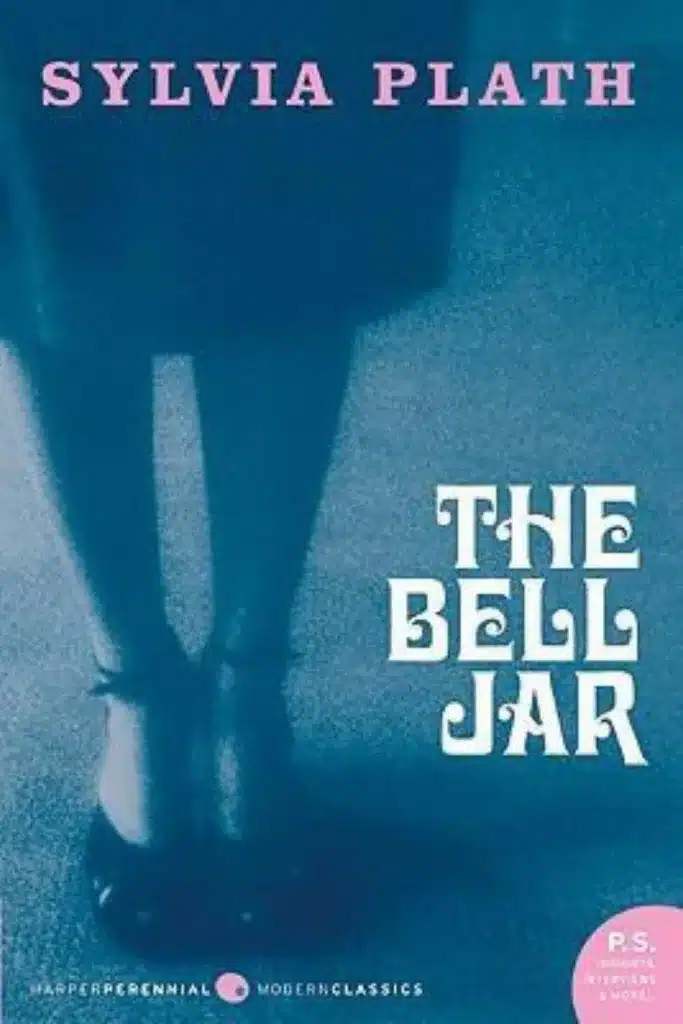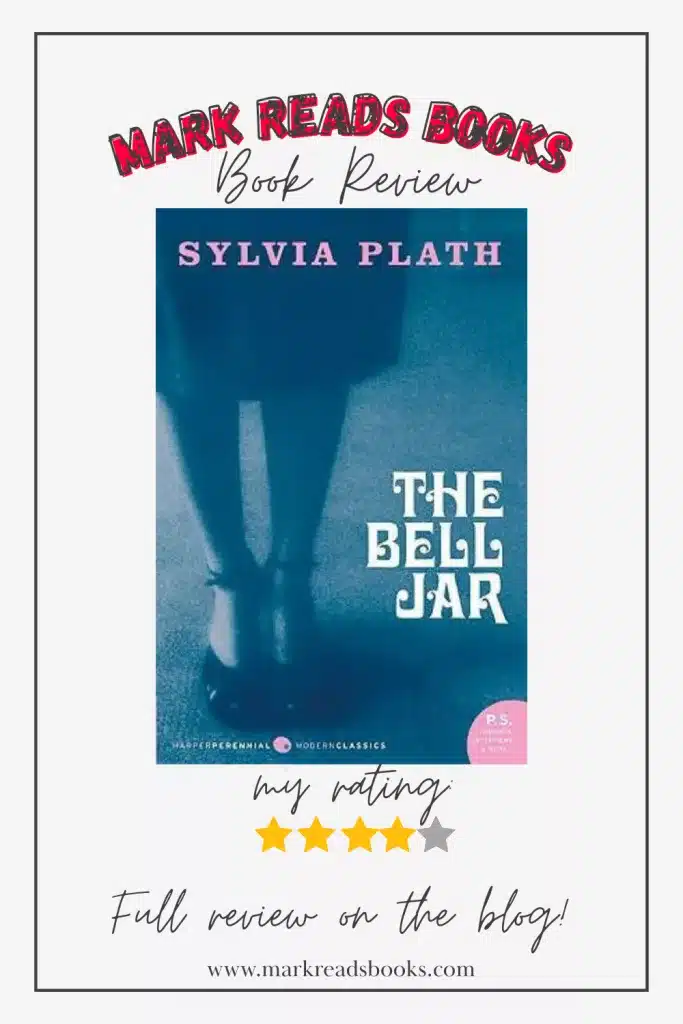The Bell Jar by Sylivia Plath remains a haunting and enduring novels about mental health even though it is written over 60 years ago.

by Sylvia Plath
Book cover
| Title | The Bell Jar |
| Writer | Sylvia Plath |
| Series | Standalone |
| Publisher | Canongate Books Ltd |
| Publication date | 1963 |
| MBR star rating /5 | ⭐⭐⭐⭐ |
| Genre | General Fiction (Adult), Literary fiction, Classics |
fact sheet
Browwed from the library
Tags

review
Pinterest pin
Synopsis: The Bell Jar
Sylvia Plath’s The Bell Jar is a modern classic that explores the fragile boundaries between ambition, identity, and mental health.
The novel follows Esther Greenwood, a young woman who, on the surface, appears to have everything in place: intelligent, talented, and navigating the opportunities of a promising career.
However, beneath that polished exterior lies a growing sense of unease and disconnection.
As Esther struggles to reconcile the expectations placed upon her with her own desires and uncertainties, her world begins to unravel.
It starts as subtle disorientation deepens into a profound psychological struggle, drawing readers into the claustrophobic intensity of her perspective.

review
Instagram post
Review: The Bell Jar
Published in 1963, The Bell Jar remains a haunting and enduring novels about mental health even though it is written over 60 years ago.
Told through the perspective of Esther Greenwood, a bright, ambitious young woman navigating her early twenties in 1950s New York,
Although things soon begin to unravel under the weight of depression and societal expectations.
What makes The Bell Jar so compelling is its timelessness. Despite its age, as Esther’s struggles with identity, purpose, and her mental well-being feel remarkably contemporary.
Plath captures not only Esther’s personal decline but also the ways in which, family, friends, and colleagues are touched by similar pressures, suggesting that her breakdown is not an isolated case but part of a broader, often unspoken experience.
Style
With Plath’s prose being at once beautiful and devastating., there is a universality in her voice that allows readers to see their own reflections in her struggles.
The metaphor of the bell jar, a suffocating glass that traps her away from the world is one of literature’s most enduring depictions of depression, encapsulating both its clarity and its claustrophobia.
Who should read this novel?
The Bell Jar is a vital read for anyone interested in literature from the middle of the 20th Century,
In addition to seeing how the gender expectiations of females can have an affect on their mental health with honesty and artistry.
It will also resonate with readers who appreciate character-driven narratives, as well as those seeking classic works that feel startlingly modern in their concerns.
In addition, those reading books by contemporary writers who tackle themes of identity and mental health will find The Bell Jar essential reading..
Conclusion
More than just a novel about one woman’s descent.
The Bell Jar is a universal exploration of what it means to feel trapped within yourself. Sylvia Plath’s only novel is as relevant today as it was in the 1960s : a powerful, empathetic, and beautifully written story that continues to give voice to experiences often left unspoken

Further reading
on Mark Reads Books
External Links
add to TBR

review
Pinterest pin
Like follow or share if you would want similar content.
Above all Keep Safe and treat people fairly.
Mark.